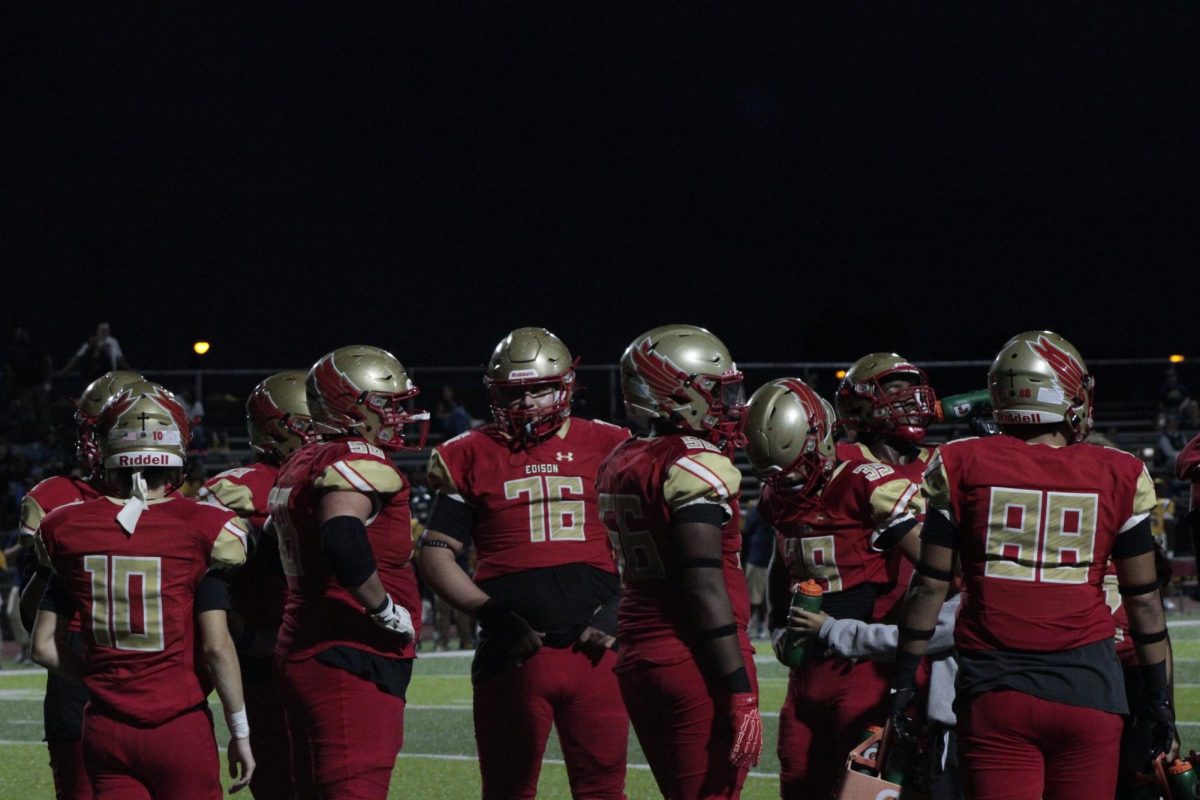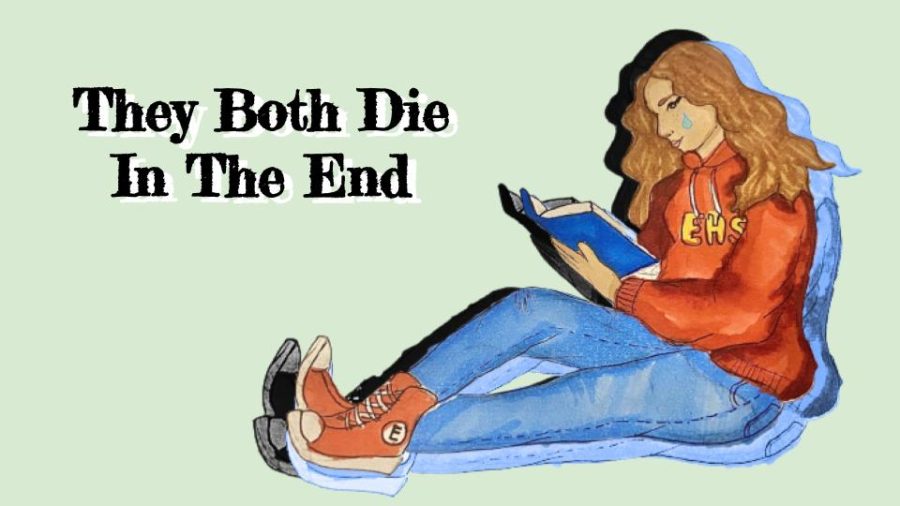We All Cry At The End
February 14, 2022
People insisted that it was worth the read. That They Both Die At The End would be one of those books that would change how people viewed life. And it was.
If your tears aren’t completely clouding your mind and blurring your vision by the end of this book, you’ll wake up the next morning knowing that you’re not going to receive a warning. You’ll never know when death will come to collect, so live every day like it’s your last. And live for you, not for anyone else; because, in the end, the only person you’re leaving with is you.
Written by Adam Silvera, this book is about two young teenage boys who receive a warning from Deathcast, telling them they could die anytime within the next twenty-four hours of their lives. Matteo and Rufus, the two main protagonists in the novel, couldn’t be any more different from each other. Matteo just wants to take care of his dad who’s been in a coma in the hospital for two weeks while Rufus is coping with a breakup from his longtime girlfriend. Matteo tends to watch life from his own bedroom as he’s shy and reserved. On the other hand, Rufus is an orphan who was excited to live the rest of his life out with his best friends, a group called the plutos, which stems from the idea that they were all abandoned by their families in one way or another especially since they all live in foster care–just like Pluto, which got demoted from a planet to a dwarf planet.
Yet, on September 5, they’re both notified that they’re going to die, and through a Tinder-mimicking “last friends” app, they find each other. It wasn’t an immediate friendship, but Rufus is running from the cops for beating up his ex’s new boyfriend and Matteo has so much he wants to experience before dying–and needs someone to push him because he’s too afraid.
As the story progresses, Matteo and Rufus struggle with their upcoming fate but decide that as there is no way to truly avoid death, it would be best for them to spend the last twenty hours living their life and facing their fears. They’re not looking for anything specific, just trying to leave a mark on this world they’re being torn apart from too soon. As Rufus follows Matteo through his goodbyes, they begin to make peace with not only their differences but for both of them at some point, their sexualities. Through this book, Silvera reminds us of the importance of life and the spontaneity of death. He shows that in the toughest of times it can become easier to fight through with the help of a friend. Rufus and Matteo’s adventures are so captivating and the friendship is so dynamic that for a minute the reader is bound to forget the title of the book.
Unlike what people would expect from this bestselling YA novel, there was no epic bucket list that the boys made that they wanted to complete before they died. Instead, it was an endearing tale of two teens trying to live their whole life in twenty-four hours with no regrets.
This book is not a love story, not an epic romance like Romeo and Juliet that’ll go down in history; it’s simply about two boys who don’t know what type of love they hold for each other. But what they do know is that it is possible to love someone despite knowing them for less than twenty-four hours. Matteo loves Rufus and Rufus loves Matteo and dying with that little piece of knowledge was more than enough for both of them. Silvera did not jump straight into the love of the story; instead, readers got to see the shy moments between the two and the anxiety of opening up in fear of judgment. This plot development brings out the theme that sometimes the strongest bonds are formed under pressure and in serious situations.
Matteo hadn’t lived a day in his life and he would’ve spent the rest of what little was left unbeknownst to the secrets and mysteries of the world had he not contacted Rufus through the Last Friends app. Silvera tells a story of friendship, fate, and the importance of living rather than just existing. Taking all that into consideration, the tone of the novel wasn’t depressing at all. It dived headfirst into Matteo and Rufus’s backstories and Silvera takes a new approach by narrating the story in a bittersweet tone. There is the inevitability of their deaths but at the same time the thrilling adrenaline rush of their final adventures.
For a generation surrounded by technology, it is easy to forget that death is unpredictable. Everyone is so attached and glued to their screens that when their time comes they won’t be able to say that they have lived, instead, that they have simply existed. This book directly challenges that feeling of invincibility that everyone carries within themselves along with the confidence that their death won’t come until they are old and gray. It shows the reality of just how unpredictable death is by intertwining a life lesson that teaches the readers that life is a thin thin string and it’s so fragile. It’s not about protecting that string, it’s about embracing the idea and enjoying every moment that the string is still intact.
This book strays from generic boring out-of-touch main characters, resonating more with the diversity and the importance of acceptance this generation gives eminence to. Though the Spanish culture isn’t mentioned or given prominence in the novel, both characters are of Latin origin. They’re both coming to terms with who they are, in terms of their sexuality. The readers can’t infer much, but the opposition to homosexuality that Silvera addresses makes the book contradict every other “coming of age” or “teen” novel. He differs from other authors because he proclaims that those who focus on the idea that life without love, any kind of it, fail to leave a mark on the world.
Although the novel was enjoyable, it wasn’t perfect. There are many side storylines and perspectives that Silvera added that don’t fit with the book’s plot. The point of these extra plotlines was to show how other people coped with their death day but instead, they just felt like a filler because it did not give any insight into the story or characters. Readers opinionated that the “carpe diem” theme was hackneyed and Silvera disregarded the potential that the concept of the book had to be something more interesting and compelling. The readers desired a big adventure on their last day and something more dramatic but Silvera took a different approach, emphasizing the importance of simplistic pleasures.
However, despite its flaws, They Both Die At The End sends a message the world needs to be reminded of: to live every day like tomorrow doesn’t exist, especially during these trying times.

























































































